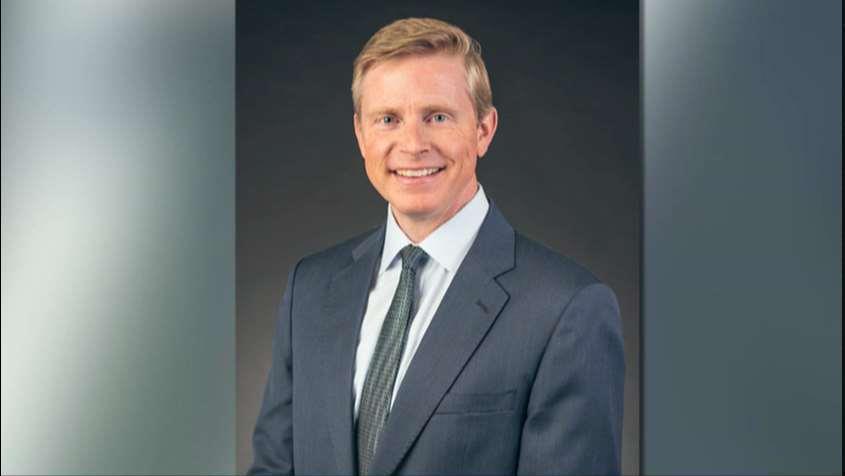EXCLUSIVE: Overstock CEO says SEC's blockchain probe is "almost dormant"
Patrick Byrne’s controversial exit from Overstock.com, Inc. isn’t related to a nearly two-year investigation by the Securities and Exchange Commission into the on-line retailer’s new money-losing blockchain business, and the probe appears to be “almost dormant,” the company’s interim CEO told Fox Business in an exclusive interview.
Jonathan Johnson, who took over for Byrne two weeks ago, says the SEC’s enforcement division hasn’t asked the company for information since December of 2018, and that he recently met with the enforcement staff to put an end to the inquiry. The longtime Overstock board member said that neither the company nor any past or present executive has received a “Wells notice” from the SEC enforcement staff. A Wells notice is a document the SEC sends to people or firms when it is planning probable legal action for violating federal security laws.
“We haven’t had requests for information for almost a year,” Johnson told Fox Business. “We have spent a king’s ransom to process their requests for information to put this to bed.” Johnson believes that based on conversations he recently had with the commission the state of the investigation is “almost dormant.”
An SEC spokesman declined comment.
Johnson spoke to Fox Business as speculation continues to swirl around Byrne’s surprise August 22 exit from the company he founded, ending one of the most flamboyant CEO tenures in corporate America.
Byrne started Overstock in 1999 as an online retailer specializing in selling furniture and soon branched out to selling other products including jewelry, apparel, pet supplies, and electronics.
Since going public in 2002, the company has often been the target of short-sellers who bet the company’s shares would decline based on what they said was Overstock’s shaky finances. Byrne mounted an aggressive campaign against the “shorts”--who he said were distorting Overstock’s financial issues.
Over the past 10 years, Byrne led a crusade of sorts to seek regulatory and legislative remedies to curtail short-seller abuses, often appearing on business news shows and even meeting with sympathetic congressional leaders to complain about the practice.
While he had little to show for his efforts (the SEC continues to view short selling as a necessary tool to curtail hyping of stocks), Byrne created an outsized public persona.
That persona seemed to reach new heights last month when he said he was resigning from Overstock because of his romantic involvement with a Russian agent who is now serving jail time as part of the FBI probe into foreign interference in the 2016 presidential election.
Many investors were skeptical of Byrne’s reasoning and immediately pointed to public disclosures made by Overstock about what appeared to be a widening investigation by the SEC’s enforcement staff into Overstock’s new blockchain business, started by Byrne in 2018, to create a crypto stock market.
That company, known as tZERO, became the focus of an SEC probe in February 2018, according to public filings. The company has made periodic disclosures about the investigation, including one in December 2018 that suggested the SEC’s probe has expanded. While former CEO Byrne hailed tZERO as a way to revolutionize the business, the blockchain arm of the business, Medici Ventures, is hemorrhaging money -- $61 million last year. Johnson has been the president of Medici Ventures.
Meanwhile, Overstock's revenue continued to shrink in the competitive e-retailing space and the company reported a loss of $0.69 per share last quarter. Shares of the e-commerce company have declined more than 22 percent since Byrne’s resignation.
But Johnson tells Fox Business while the investigation has been a distraction--he says it has impeded plans to sell Overstock’s retail business with one buyer--significant enforcement action is not expected.
Johnson says the last time the SEC’s enforcement staff asked for information was in December 2018. The investigation appears to be focusing on public comments Overstock officials made that may have hyped investors' interest in putting money into tZERO. Johnson said two investors had either reduced their planned stake or declined to put money into the project after initially signaling greater interest.
“We disclosed what they initially said,” Johnson said of the investors’ interest adding that the company didn’t intentionally mislead anyone.
One problem the company faces in describing its dealings with regulators is that the investigation is occurring while Overstock is dealing with SEC compliance staff over the creation of tZERO. The blockchain company is also undergoing a routine review of its plans for a crypto stock market. “The two sets of dialogue got conflated into one,” said Johnson. Johnson added that the various company statements about its involvement with the agency created a misimpression that the enforcement staff was routinely badgering the company for documents when it was mainly the compliance staffs doing so in its review.
Johnson said he met with SEC officials in late June in an effort to end the investigation or at least get an understanding of its scope. He is waiting to hear back from the federal agency.
“We have been dealing with the SEC for 17 years and the enforcement staff has zero incentive to close a case unless you cooperate and push and that’s what I did,” Johnson said.




















